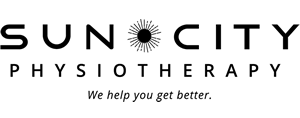Headache & Migraine: Physiotherapy Management
Is that pain in your head really a pain in the neck? Do you suffer from persistent headaches when sitting at your desk at work? Or does your headache come on when there is added stress in your life? Maybe when you get a migraine you’re in bed for the next 2 days?
These are all common descriptions physiotherapists hear when they treat someone who suffers from headaches or migraines. They are an incredibly common problem – up to 47% of the global population suffer with headache, and an estimated 10-15% suffer with 1-year prevalence of migraine according to the World Health Organization. They also create significant socio-economic burden due to the volume of time taken off work.
Some of the most common forms of headache include cervicogenic headache, tension-type headache, and of course, migraine. Cervicogenic headaches are ones that originate from the cervical spine (neck), whilst tension-type headaches are related to muscle tension in the forehead, face and neck. Migraines are a neuro-vascular cause of headache and relates to altered activity of the brainstem and nerve tissue. They usually have unique characteristics of sensitivity to light and sound, nausea or vomiting.
Your physiotherapist will be able to diagnose your specific type of headache according to key characteristics such as;
- quality and area of pain
- severity of pain
- chronicity (length of time you’ve suffered headaches) and length of each episode
- regularity of episodes
- the presence or absence of light/sound sensitivity.
Evidence strongly supports physiotherapy intervention for all three forms of headache. In the past there has been some controversy and debate when it comes to intervention for migraine, but recent research suggests the joints, muscles and nerve tissue in the neck may have a significant role to play when it comes to migraines – indicating physiotherapy management as an option.
Medical management of migraine includes non-steroidal anti-inflammatories, corticosteroids or the migraine-specific group of medication known as the triptans. Some patients report excellent results, however, quite a few report no improvement with medication, and some even report worsening symptoms!
Another intervention that has been experimented with in recent years is botox injections into the muscles of the forehead and neck in chronic migraine sufferers, paralyzing the muscles – however research shows only “small to modest” benefit and this must be repeated every 12 weeks.
In most cases, physiotherapy alone offers an effective solution for tension headaches.
- Correct diagnosis– On your first visit, we can establish a correct diagnosis to direct the most effective care to your headache. Establishing the correct diagnosis early is imperative as several injuries have similar symptoms yet have different treatment protocols. Early treatment will be focused on reducing pain and regaining normal neck range of motion.
- Improving neck joint mobility– Using manual therapy techniques to improve upper neck joint mobility and muscle flexibility will aid your symptoms
- Improving your posture– Your headaches and migraines can be improved by improving your posture. Poor posture can lead to strain on your back and neck muscles possibly leading to headaches and migraine.
- Pillow assessment– A cervical pillow assessment can help ensure that you have the proper pillow to obtain an optimal neck position during sleeping.
- Workstation /work desk set up– Sitting incorrectly at your desk, having the computer screen at an incorrect height could be some of the leading causes of headaches and migraines
- Strengthening program– The physiotherapist will then prescribe an exercise program to improve the strength and coordination of your deep neck stabilizers and upper back muscles, which are important for preventing re-injury.
If you are someone who suffers from headache or migraine then come and see a physiotherapist for a thorough and careful assessment followed by outlining an appropriate treatment regime to manage and resolve the condition.
